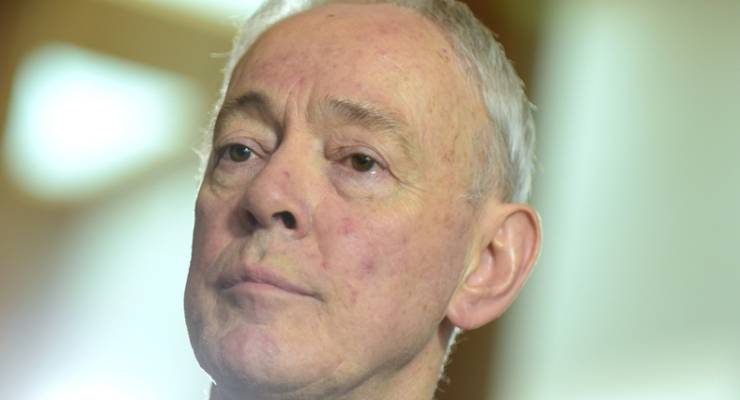
One Nation wasn’t the only far-right party to do well on July 2; a number of extremist parties also did well.
Before the election, we looked at some of the rogues, whackjobs and not-quite-racists running for high office. Today, we revisit a few key names, to see where (and perhaps why) they did well with voters.
Family First and other Christians
In the House of Representatives, One Nation wasn’t even the most successful extremist party. That honour belongs to Family First, the anti-abortion, climate denialist, Islamophobic party that supports a “cap” on the number of Muslims in Australia.
Family First is returning to the Senate after a tight contest, and the party secured just under 200,000 lower house votes across the country, compared to 173,000 for One Nation, although One Nation had by far the bigger swing to it given it barely troubled the scorers in 2013.
Family First also scored 176,000 first preference votes nationally in the Senate, a swing of 0.2%, although its fortunes in different states were mixed — it went down in South Australia, probably due to the rise in the (much smaller) One Nation vote there (it’s possible the extremists cannibalised each other in South Australia, with benefits for the bigger parties). But the Mendicant State remains the Family First stronghold. One Nation towered over Family First in the Senate, where Pauline Hanson and Co. received 550,000 first preference votes nationwide.
The Christian Democratic Party gained over 150,000 lower house votes nationally, though they lost out to libertarian gun nut David Leyonhjelm in the race for the final NSW Senate spot. This Christian conservative party denies climate change, wants an investigation into halal certification, opposes “sharia law” and wants to ban Muslim immigration.
Its performance was a substantial improvement on its 2013 performance when it barely registered, with less than 75,000 votes. It also improved in the Senate, and reached 150,000 votes, but it’s almost entirely a NSW party, unsurprisingly given it’s always been a vehicle for Fred Nile and his family.
The anti-Muslim enthusiasts, the gun lovers and poor old Katter
Aside from the various Christian groups, there’s the openly racist Australian Liberty Alliance, which garnered a national vote of just 25,000 in the lower house but 95,000 in the Senate, evenly spread between Queensland, Victoria and NSW. Like Family First, they performed poorly in South Australia. The Jacqui Lambie Network only garnered 27,000 votes in the Senate in Tasmania, but that was enough to see Lambie returned to the Senate she has graced with her presence since 2014.
Even the small extremist outfits fared well. The theocratic conspiracy theorist Rise Up Australia Party also enjoyed a big lift in its House of Representatives vote to 67,000, although it dropped its bundle in the Senate and only picked up 36,000, a small swing against it from 2013. The Shooters, Fishers and Farmers, which wants to abandon gun control, ban “animal liberation based hate campaigning” and curb foreign aid, performed poorly in the lower house but picked up more than 180,000 Senate votes, powered by a strong result in NSW, where it got a quarter of a quota.
Only Bob Katter’s party went backwards, with a 0.5% swing that took his total vote in the Reps down to 72,000 — but KAP doesn’t particularly fit on this list, given that despite Katter’s own claim of “no gay people in his electorate” it has virtually no interest in social issues, being primarily focused on restoring protectionism and increasing the role of government in the economy.
Thank Palmer
Undoubtedly these parties all benefited from the implosion of the Palmer United Party, which garnered over 700,000 first preference lower house votes in 2013 and virtually none this election, freeing up a huge number of disgruntled voters who’d already experimented with minor party voting to look for other homes. But PUP was never even vaguely as extremist as One Nation, Family First or the Christian Democrats; Clive Palmer in fact was a strong asylum seeker advocate, wanted to remove federal government regulation of marriage altogether and refused to back Jacqui Lambie’s attacks on Islam when she was still in his party.
And the overall level of support for extremist right-wing parties has increased: even if you include PUP in the comparison, extremist parties managed 9.4% of the first preference Senate vote in 2013; on July 2, they got 10.1%, or over 1.3 million votes, despite the collapse of PUP and the rise of high-profile micro-parties that shared their economic agenda, like NXT.
All this will be music to the ears of Muslim extremists, who will see the rising tide of public hatred toward Australia’s many Muslim communities as an important factor in helping their efforts to radicalise community members who feel themselves to be under attack. And white extremists will be delighted, as well — they’ll see their message of intolerance and aggression increasingly legitimised by the democratic process.








Until one of the major parties steps up to address one of the big underlying reasons people vote for these parties – extremely high immigration – in a saner and more balanced fashion, they will continue to gain marketshare.
“The Shooters, Fishers and Farmers, which wants to … curb foreign aid.” We still offer foreign aid? I thought Julie Bishop had put an end to all yer foreigners playing us for mugs (other than Nauru, Cambodia and PNG.)
I don’t think immigration is a problem, but the major parties’ slavish devotion to the cult of the market is. People’s disgruntlement with late capitalism and its denial of community in favour of the economy is what upsets and destabilises; then right-wing extremists channel this upset into pointless scapegoating.
BK – “that’s not writing, it’s typing” – just punching his time clock?
Ta muchly for the numbers, cribbed from elsewhere, but what is your point?
Is somebody reducing the oxygen content in the Crikey bunker this year?